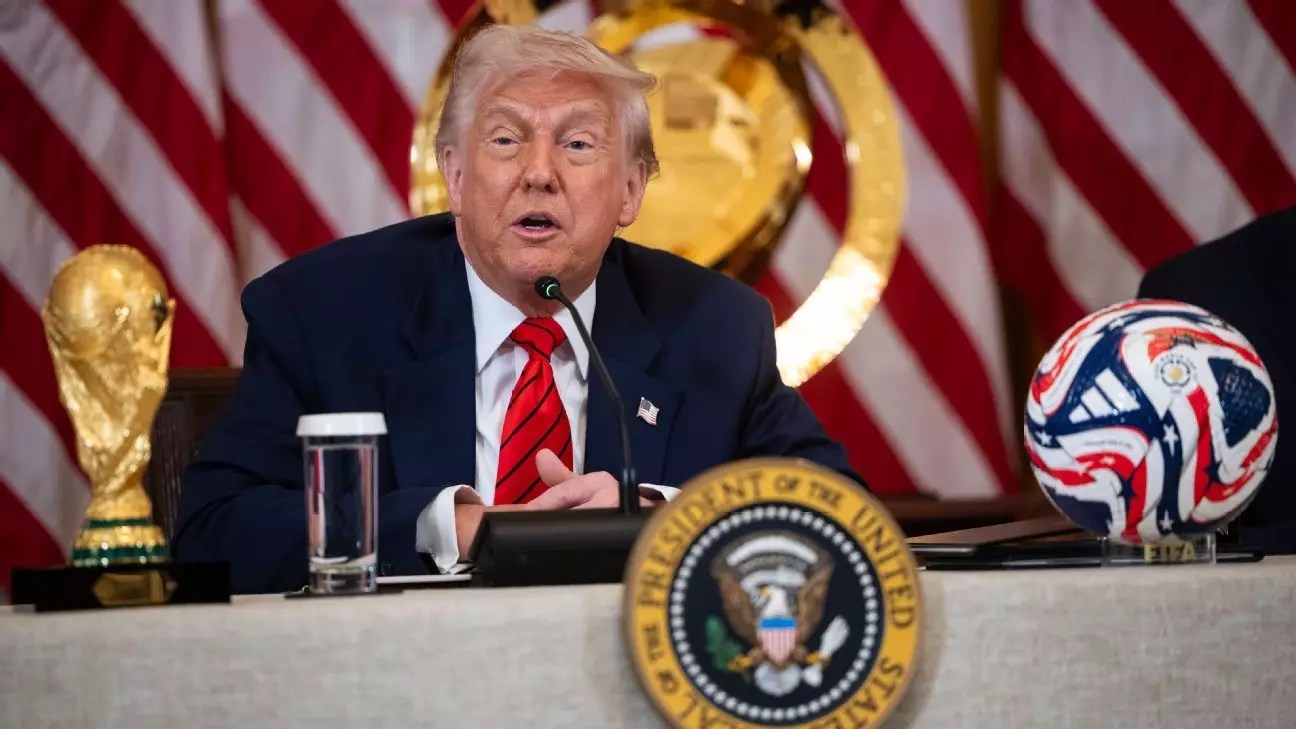In a notable move that combines sports and politics, President Donald Trump announced the appointment of Andrew Giuliani, son of the iconic former New York City Mayor Rudy Giuliani, to head the executive director role of the presidential task force overseeing the 2026 FIFA World Cup. This unprecedented sporting event will span across the U.S., Canada, and Mexico, marking a significant moment in sports history. Andrew’s prior experience as a special assistant to Trump and associate director in the Office of Public Liaison positions him as a unique candidate, one who can navigate the nexus of governmental protocol and the exhilarating world of sports.
Giuliani’s stint in the Office of Public Liaison suggests a deft understanding of the public landscape and how to cultivate relationships with diverse stakeholders. Trump’s description of him as a fiercely competitive golfer extends beyond a mere anecdote; it reflects a mindset of resilience and ambition that will be critical for the challenges ahead. Leading such a monumental task force necessitates these traits, and Giuliani’s strategic savvy could prove invaluable.
The Economic Impact and Global Attention
The task force is gearing up to orchestrate what Trump promises will be the “biggest, safest, and most extraordinary soccer tournament in history.” This assertion is far from hyperbole. FIFA President Gianni Infantino has indicated that the dual hosting of the World Cup and the inaugural Club World Cup could generate an astonishing $50 billion in economic output for the U.S. alone. Moreover, these events are projected to create nearly 300,000 jobs, underscoring the potential socio-economic uplift they could bring.
Infantino’s remark that “America will welcome the world” is not merely a slogan; it encapsulates the hospitality and infrastructure that must be in place to accommodate an influx of visitors from around 100 countries. This monumental responsibility rests on the shoulders of the task force, which includes Carlos Cordeiro, a seasoned FIFA senior adviser. The collaboration between these figures represents a concerted effort to leave a lasting legacy in the realm of international sports.
A Seamless Experience for Fans
As Trump emphasized the importance of a seamless experience for travelers, it is crucial to recognize the logistical challenges that such a large-scale event entails. Coordinating transportation, accommodations, and safety measures across multiple countries is no small feat. The task force must prioritize efficient communication and collaboration among various stakeholders, including local governments, law enforcement, and hospitality organizations.
Vice President JD Vance, vice chair of the task force, echoed these sentiments, reinforcing the collective commitment to achieving success. His assurance that “everybody is welcome” lays the groundwork for an inclusive atmosphere that values diversity. The recognition of the World Cup as a global unifier highlights the broader social impact these tournaments can have, transcending geographical and cultural barriers.
In navigating the complex landscape of international sports, the 2026 FIFA World Cup task force will face challenges that require innovation and adaptability. After all, this isn’t just an event; it is an opportunity to engage with millions, foster economic growth, and elevate the profile of soccer across the continent. As the countdown to this historic tournament begins, all eyes will be on the task force—and the world will undoubtedly be watching.


Leave a Reply